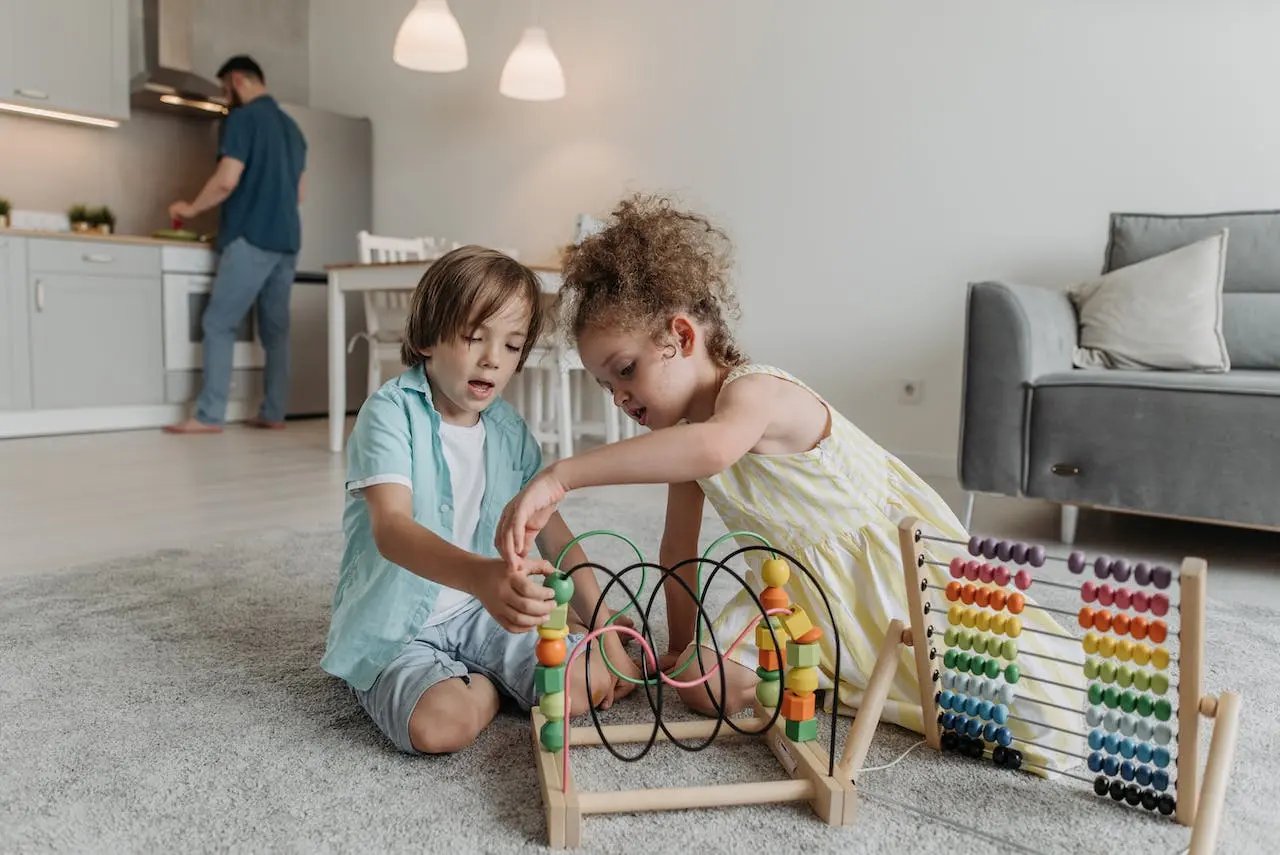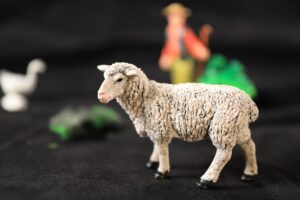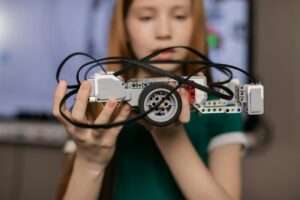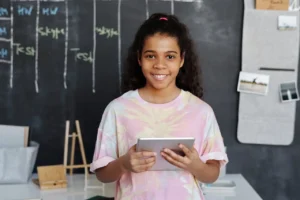Understanding the Significance of Educational Toys
A refined motor skill is of utmost importance for the development of the child helping them in activities such as writing, buttons their clothes up, handling things. Educational toys are potent agents that enable cognitive development while entertaining the kids with educational games.
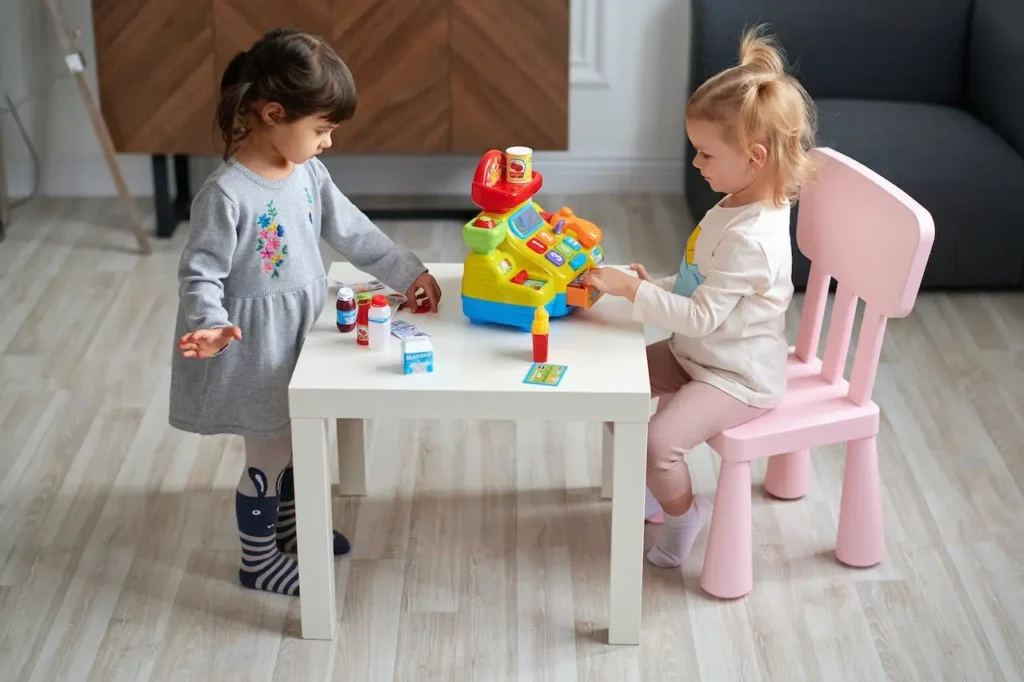
Importance of Fine Motor Skills Development
Fine motor skills represent refined hand and finger movements. Those developments are important because they form a foundation of learning and other activities in daily life. Such children also have an ability of writing by hand that is good, a better eye-hand co-ordination and advanced skill that is deft.
Criteria for Selecting Educational Toys
Choosing the right educational toys is crucial for fostering fine motor skills. Factors such as safety, age-appropriateness, durability, and the toy’s ability to stimulate creativity and problem-solving should be considered. Look for toys that require manipulation and offer opportunities for children to practice various hand movements.
Best Educational Toys for Fine Motor Skills Development
Toys for Infants (0-12 months)
- Soft Blocks with Textures: The blocker for babies allows children different toys, it teach children letters, counting, balancing, building and other motor skills.The shape of the number carved on blockers, makes them good to learn Arabic numbers addition and subtraction. It can also be as match game.
- Activity Gym with Hanging Toys: Light-up the sensory of your young children using our bright Activity Gym! It stimulates sensory development, motor skills enhancement, and cognitive growth, offering an entertaining learning environment for infants with its suspended toy selection.
- Rattles and Teethers: Rattles and teethers engage babies with sensory stimulation, aiding in motor skill development. These playful, safe toys encourage grasping, hand-eye coordination, and soothing teething discomfort, fostering early developmental milestones.
Toys for Toddlers (1-3 years)
- Stacking Rings or Cups: Stacking rings or cups aid toddlers’ skill development by enhancing hand-eye coordination, fine motor skills, spatial awareness, problem-solving abilities, and cognitive development through sorting, stacking, and understanding size relationships.
- Shape Sorters: Toddlers’ cognitive development are facilitated by Shape Sorters as it develops spatial reasoning, motor skills, and problem solving abilities. The spatial perception, fine motor abilities, and cognitive problem–solving skills form a holistic approach for youngsters in these toys.
- Large Building Blocks: Toddlers’ development benefits from large building blocks in that it improves spatial awareness, dexterity, and cognitive abilities. Spatial reasoning, manual proficiency, and critical thinking are enhanced by them. Also, they enhance creativity, promote problem solving skills and aid in physical fine-tuning required during that period of development.
Toys for Preschoolers (3-5 years)
- Puzzles: In addition, puzzles help to promote cognitive development among preschoolers through visual-motor coordination, hand dexterity, and logic ability. These promote spatial awareness, develop fine motor capacities, and cultivate analytic capabilities in young learners who will eventually be equipped with high-level cognitive skills that are critical for handling even advanced problem solving situations.
- Fine Motor Tools Kit: The “fine motor tools kit” enhances Preschoolers’ skills in coordination, visual-motor integration, and cognitive processes. The system also helps them refine coordinating, motor, and problem-solving skills that are essential for complete development.
- Building Sets: The development of coordination skills, intelligence, spatial orientation are all promoted by construction sets in pre-schoolers’ training. They help in developing of manipulative skills, spatial reasoning and critical thinking of building of coordinative construction skills, construction proficiency and analytical problem-solving skills for kids’ minds.
FAQs and Troubleshooting
Q1: How shall I tell that a toy is good for developing my baby’s hand-eye coordination or fine motor skills?
A: Go for toys that require handling and careful finger actions. Moreover, review them and check for their “skill-building” values.
Q2: Do special toys exist suitable for children with a delay in development?
A: However, there are a few toys that are specifically manufactured to help children with special needs. Look for toys that have an adapting element to cater for unique requirements.
Nurturing Development Through Play
The educational toys play a crucial role in the development of the children’s fine motor skills. In this line, parents and caregivers can support their child’s overall growth by giving out entertaining toys that are related with skills specific.
Relevant Questions to Address:
What are fine motor skills, and why are they important for child development?
Fine motor skills involve precise hand and finger movements essential for tasks like writing and grasping objects, pivotal for children’s cognitive and physical development.
How do educational toys specifically target and improve fine motor skills?
Educational toys engage children in activities requiring hand manipulation, aiding in refining hand-eye coordination, dexterity, and finger strength, thereby improving fine motor skills.
What safety measures should parents consider when choosing toys for fine motor skills development?
Parents should prioritize toy safety by considering age-appropriate toys, checking for small parts, ensuring non-toxic materials, and following manufacturer guidelines.
What are some signs that indicate a child might need assistance in developing their fine motor skills?
Signs indicating a child might need fine motor skill support include struggles with grasping objects, difficulty with buttoning clothes, or challenges with hand coordination activities.
Are there specific toys that are better suited for children with special needs or developmental delays?
Specific toys designed with adaptive features, such as larger grips or sensory elements, cater to children with special needs or developmental delays, aiding in skill development.
How can parents encourage and support fine motor skill development through play at home?
Parents can encourage fine motor skill development at home by providing toys like building blocks, puzzles, and art supplies, engaging in activities that promote hand-eye coordination and dexterity.


